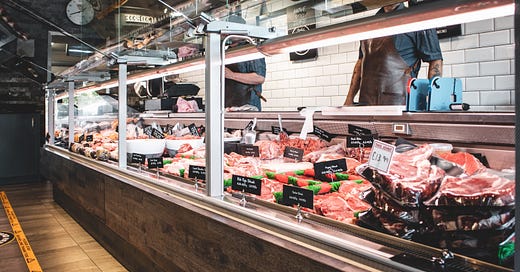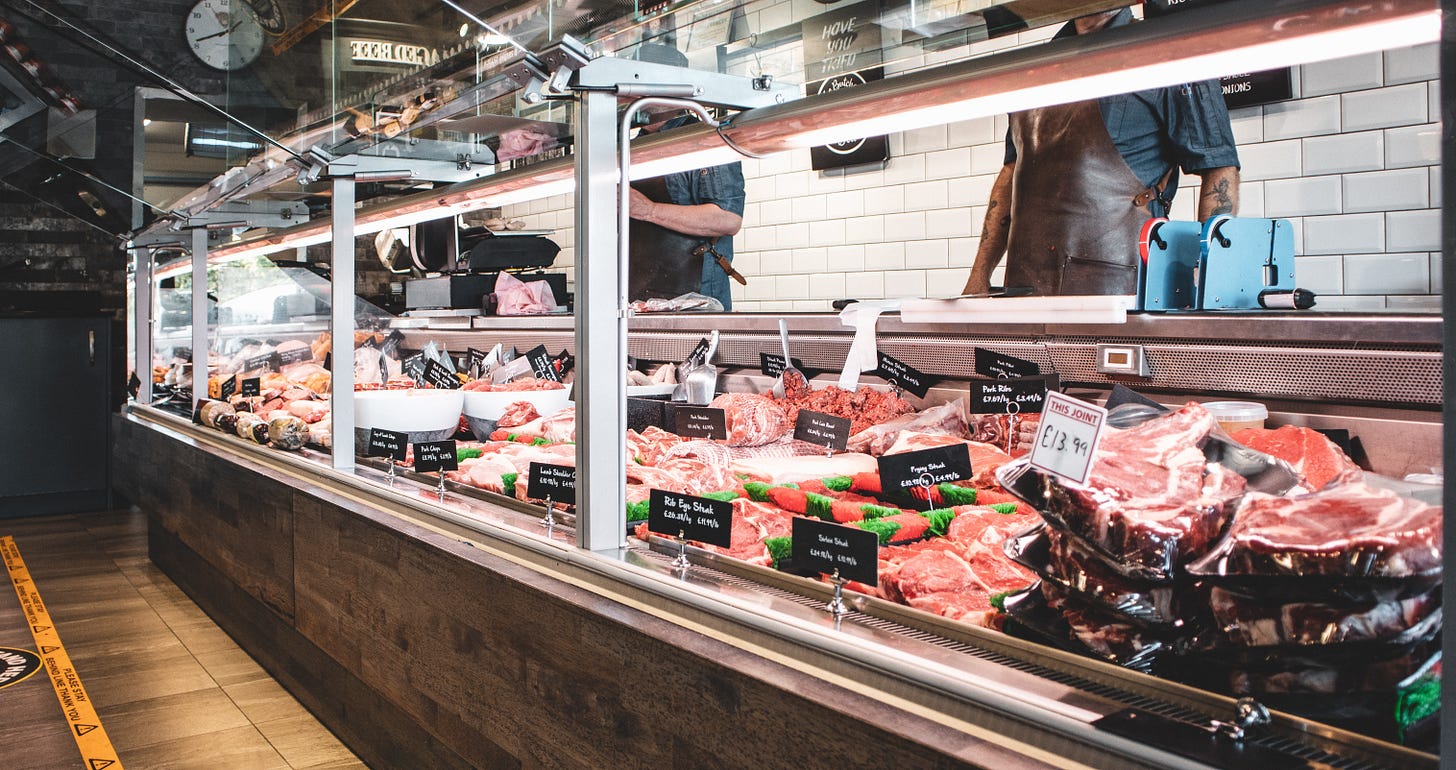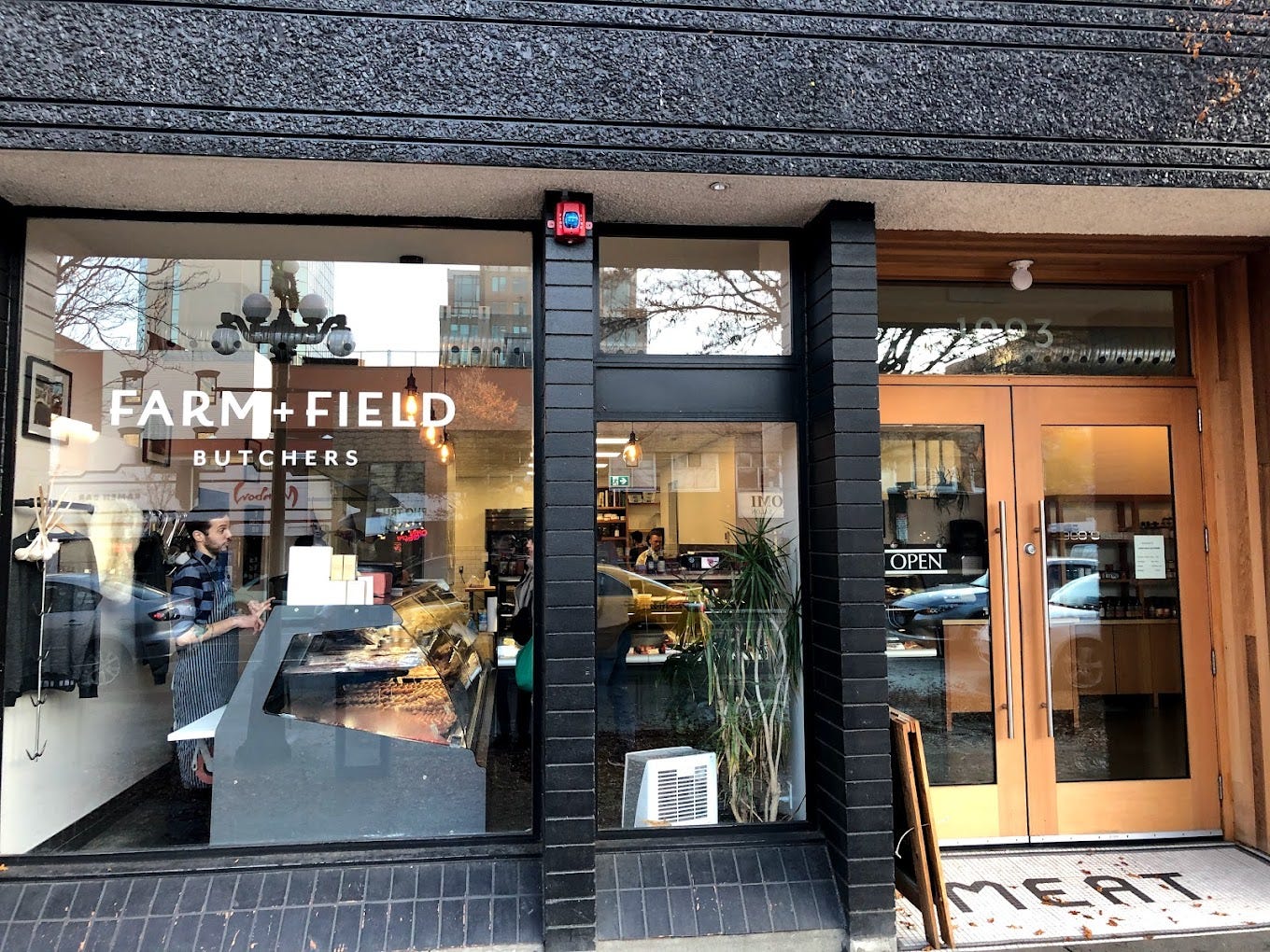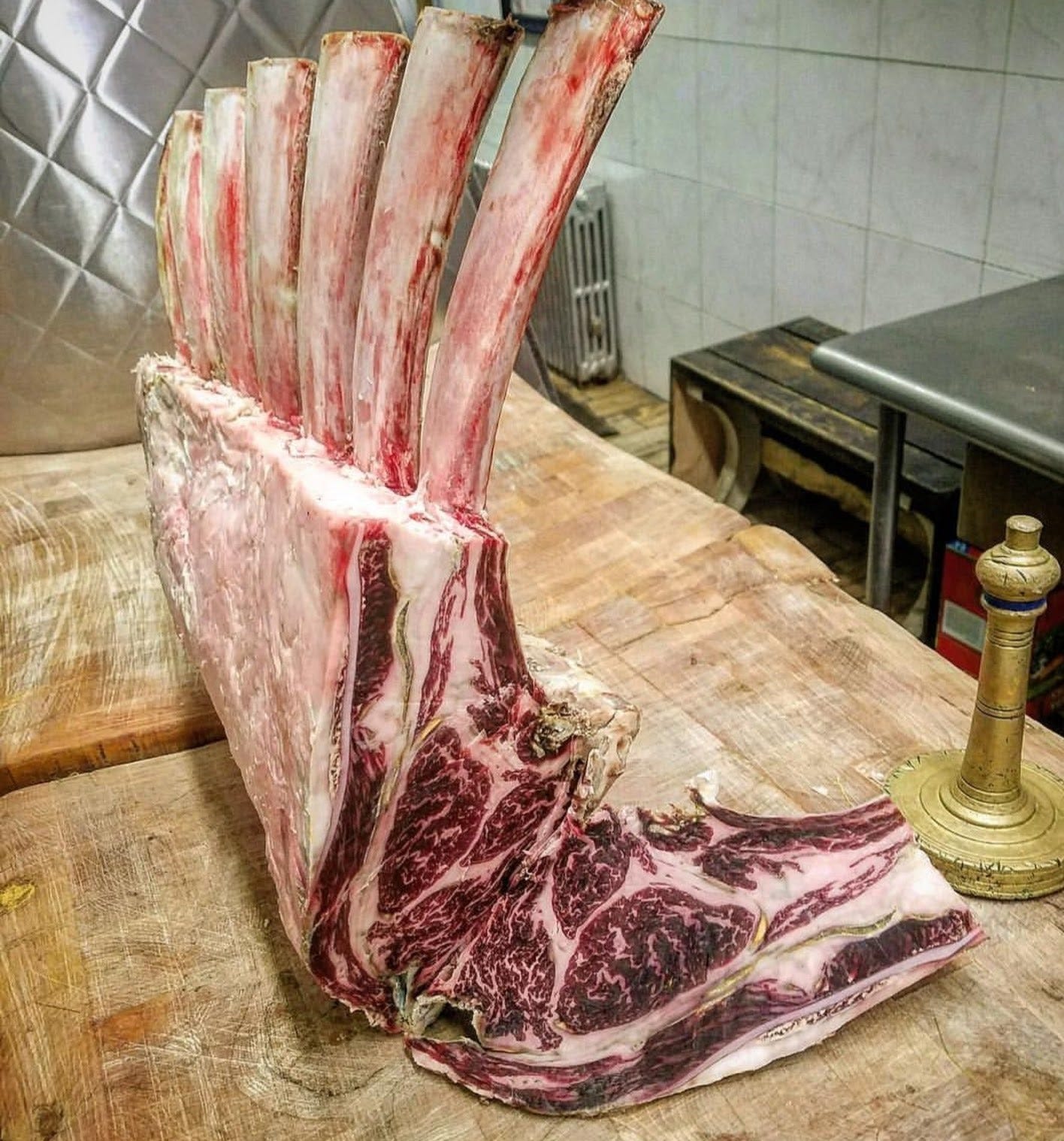Local Butcher Shops: Returning to a City Near You
A profession dating to Roman times, butcher shops are coming back with a modern flare.
Butcher shops, the old-time city and small-town staple, appear to be making a comeback in communities across the continent. Recent travels and subsequent searching have led to finding some gems. Its been refreshing to see new shops pop up and have local, cut to order, often more ethically raised meat and animal products.
This past summer, my wife and I were fortunate to have visited Victoria for a family wedding at a charming beachfront venue. Nestled on Canada’s Pacific Coast at the southern end of Vancouver Island sits the historic capital city for the province of British Columbia. An hour and a half ferry ride from the great Canadian metropolis of Vancouver, Victoria boasts good weather, world class attractions such as Butchart Gardens, and an abundance of outdoor activities and places to explore during a destination wedding weekend.
In search of small bites, something healthy and quick to hold us over before the welcome reception BBQ, we googled butcher shops while strolling around Victoria’s Inner Harbor. We were in luck. There was a local shop, Farm + Field Butchers, six-minutes walking distance from our hotel. Stepping into the shop, we were greeted by an art-deco style black-and-white mosaic entrance floor with simple letters arranged to spell “MEAT.” Like many of the new butcher shops opening for business, Farm + Field Butchers brings the farm and the consumer closer together. Its website lists all the companies that it sources from, local ethical farms and suppliers in Canada. Meat, eggs, and dairy made from animals with no added hormones, antibiotics, and pasture raised for the best quality and health.
A carnivore’s dream, Farm + Field Butchers had one of the best varieties of choices I have seen. Collagen-rich bone broth to go, pasture raised dry-aged ribeye, double smoked bacon, and butter from Cow’s Creamery all from cows raised on the fertile farmland of Prince Edward’s Island, Nova Scotia, were just some of the selections. They also had a vast selection of cured meats and specialty sausages such as French Dried Plum and Brandy, Roasted Mushroom and Rosemary, Spicy Korean BBQ, and Longganisa “Sweet, Sour, Spicy” (a Filipino sausage like chorizo).
Our favorite, and what held us over before the BBQ, was the thinly sliced salami, with a slightly smaller selection than the sausage. We ended up getting a few packages of salami: Duck Noisette, Elk Goteborg, and Triple Fennel Ale. Light bodied and full of flavor, this subdued our hunger.
For those that abstain from meat, they also had dried lobster mushrooms grown locally in the Pacific Northwest that have a meaty texture.
As I delved more into butcher shops one evening back home on the East Coast, research online and anecdotal evidence revealed that neighborhood butcher shops are making a comeback in the United States and Canada. Further, the options of cuts and variety of animals is numerous.
Farm + Field Butchers opened its door in December 2016, and many other small, locally owned butcher shops have sprung up from coast to coast in the last decade. While many new shops have opened, there are also some classic shops that have been open for decades, and even longer. Pino’s Prime Meat has been family-owned and operated for over 115 years in SoHo in New York City.
Compared to supermarkets, butcher shops win on variety and sell more high-end meats such as wagyu, bison, venison, duck, and elk. Butcher shops are also one of the best places to find nutrient-rich organ meats. If a butcher shop does not have these meats or organs for sale at their store, they often can source for custom order. Further, butchers will usually have good lunch options such as fresh sandwiches (unless you avoid bread like me due to issues digesting gluten).
Since the 1960s, the rise of industrial meat packaging and supermarkets put many butcher shops out of business who would sell the whole animal nose-to-tail. For example, in the UK, the number of butcher shops declined from 22,000 in 1995 to just 7,000 in 2010. These large meat retailers replaced the need for butchers, and people became less concerned about eating other cuts such as shank, oxtail, bone marrow, liver, and cooking fat such as beef tallow or duck.[1]
Despite its 20th century decline in North America, butchery is an ancient profession dating back to the domestication of animals roughly 10,000 years ago. In ancient Rome, there are references to the trade in numerous texts as it took strength, skill, and practice to carve meat from the animal for Roman consumption. Later on, in the southwest of England, a Roman archeological site dating back to 1,700 years ago revealed an ancient butcher shop that sold prime cuts of meat. During medieval times, butchers formed guilds, strengthening the community, and issued rules and restrictions on slaughtering animals.
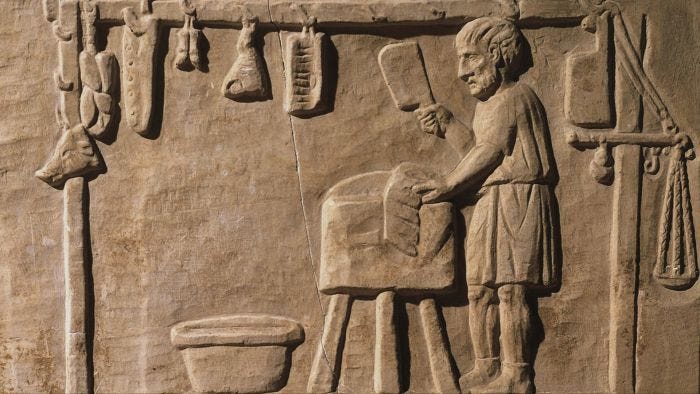
In the last decade, however, we’re seeing this old tradition making a comeback in our corner of the world. Even some former vegetarians have recently become butchers. For many vegetarians, the factory farm practices that most of the large farms and meat processing operations use to keep costs low and profits high is a common reason that they decided to give up eating meat. But in one example, Standing Butchery owner Jared Standing in Los Angeles, stopped being a vegetarian and started his own shop once he was able to select ethical and high-quality sources of meat himself for consumers.
For those on travel or living nearby the cities below, some of our favorite butcher shops include:
1. Farm + Field Butchers (Victoria, BC)
2. Pino's Prime Meat (New York City)
3. Soko Butcher (Washington, DC)
4. Standing Butchery (Los Angeles)
5. The Meat Board (Fort Worth, TX)
6. Plymouth Prime Meats (Plymouth, MI)
While spending this weekend at home near Washington, DC, my wife and I picked up a few pounds of honeycombed tripe (stomach lining from cattle) and sweetbread (veal thymus). It was custom sourced by our local butcher shop, Soko Butcher, in the sleepy DC neighborhood of Takoma Park, which just opened in March 2022.
We encourage you to visit your local butcher shop. Find the old ones, find the new. Ask them about their sourcing and what their favorite orders to receive are. Lastly, tell us about them! Anywhere you may be in the world, we want to know your favorite butcher shop. We might just be there and visit one day.
*Note: The author is not receiving compensation from Farm + Field Butchers for this article. He wrote it because of how impressed he was of their store.
[1] Interesting fact: McDonald’s used to cook all of its French Fries in beef tallow which recently is being discussed as a health food. But it was replaced by seed oils – a canola-oil blend of soy, corn, and canola. Renowned physician Dr. Kiltz calls seed oils the worst food in human history due to its suspected cause of the rise in many chronic illnesses. It was also a contributing factor to my prior flare ups of facial eczema. However, other doctors think otherwise and say seed oils are healthy and the talk of them causing health problems is a myth.
👉If you enjoyed this post, feel free to share it with friends!
Related Articles:

